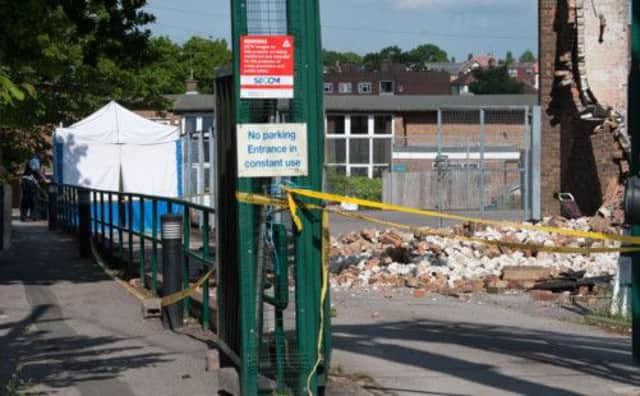Leaders: Answer to extremism is not more of the same


But in the febrile atmosphere in race relations in the UK at the moment, just that suspicion is enough to inflame tensions.
The murder of Drummer Lee Rigby was a horrific act apparently perpetrated with the aim of fomenting disharmony, distrust and violence. Its ultimate objective was to contribute towards the destabilisation of our society.
Advertisement
Hide AdAdvertisement
Hide AdHis death was a tragedy. It will be a further tragedy if we allow extremists to exploit his death to further their views. Because let us be clear: the base motive of the fire-raisers in this incident is hard to distinguish from the base motive of those responsible for the Woolwich murder. Both have as their objective the sowing of fear and hatred.
In part, the attack on a facility used by members of London’s large Somali community has already had one of its desired effects. In the stark words of the centre’s Abu Bakar Ali: “The Somali community is in fear.”
The seriousness of this incident entirely justifies the unusual use of counter-terrorism officers in the investigation into who set the fire. Normally these officers would not be involved in a simple case of fire-raising, but the stakes here are high. Whoever perpetrated this act must be apprehended as quickly as possible, and a clear message sent that such behaviour will not be tolerated. Such work falls very much under the heading of “counter-terrorism”.
There are a range of views in this country about the benefits and challenges of multiculturalism. Some of the issues involved are undeniably difficult. But what all decent people can surely agree on is the need for any political disagreements in this area – whether they be about immigration, housing, schooling, culture or employment – to be put aside for the moment and instead be replaced by unity of purpose against those who only seek to divide.
The words of local politicians are highly appropriate in these circumstances: “This is not just an attack on the Muslim community, it is an attack on all of us and our values,” said MP Theresa Villiers. London mayor Boris Johnson also struck the correct tone: “There is no place in an open, tolerant and diverse city like London for hate, for prejudice, for violence.”
The vast majority of British people of all faiths and none, who reject the extremism on both sides, now have a simple responsibility. It is to step back from the quite natural sense of outrage such acts provoke, and to approach them with the clear head and cool temper they require. To do otherwise would be to hand a clear victory to those who are hoping for an over-reaction from both individuals and authority.
Prisoners deserve to lose their vote
Andrew McLellan, a former chief inspector of prisons, did not mince his words yesterday when he condemned the Scottish Government’s reluctance to allow prisoners a vote in the referendum on Scottish independence. Ministers, he said, were demonstrating “weakness” in their efforts to “wriggle out” of allowing those in jail to exercise their franchise.
In these comments, the Very Rev Dr McLellan was undoubtedly reflecting sincerely held and legitimate views about what he sees as the rights of prisoners.
Advertisement
Hide AdAdvertisement
Hide AdBut in this case he is out of step with public opinion. The average Scot is entirely relaxed about the prospect of convicted criminals being denied their say in this vote.
Locking someone up behind bars is an extraordinarily powerful demonstration of the interests of the state over the interests of the individual. It is not done lightly, and it is understood by all involved that it contravenes some very basic human freedoms. Nevertheless, it is an accepted part of our society and has been for as long as there has been the rule of law.
The Howard League Scotland, which believes in some voting rights for prisoners, said yesterday: “We make this as a moral case, not a legal one.” Well there is just as moral a case for saying that convicted prisoners, who have removed themselves from the normal discourse of society through their criminal acts, should not be allowed to participate in some of the ways that society makes decisions about its future if society has deemed they be imprisoned at the time of the vote.
Being deprived of the ability to help choose a constitutional future for this country should be part of the punishment.